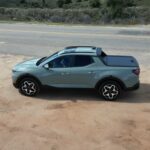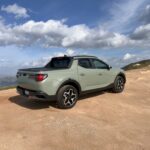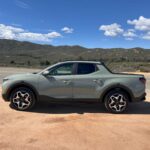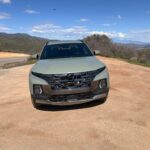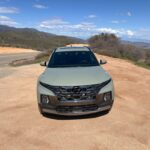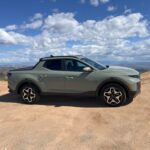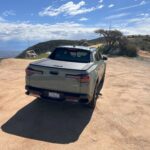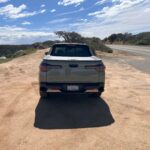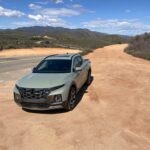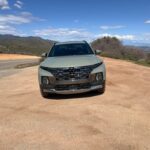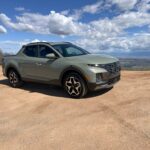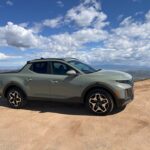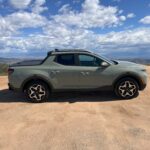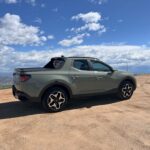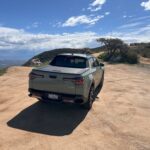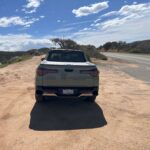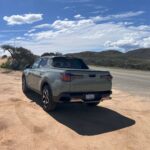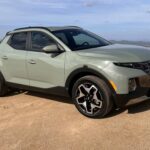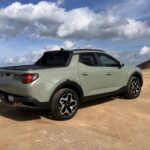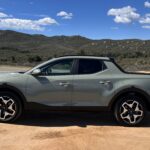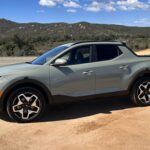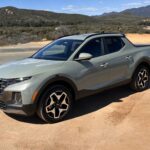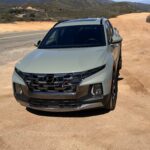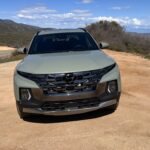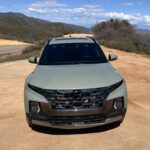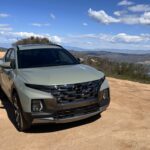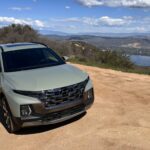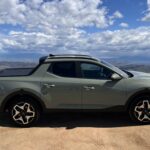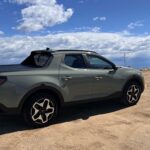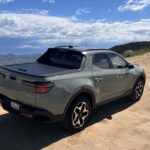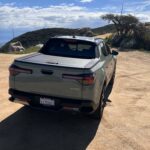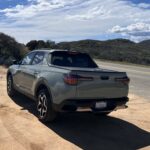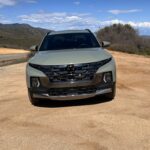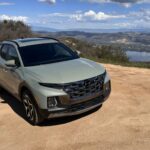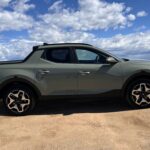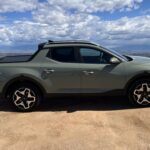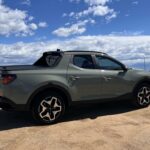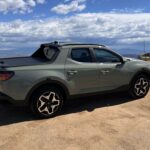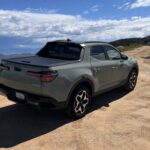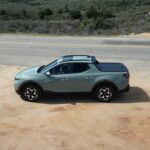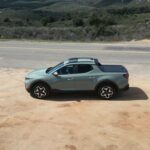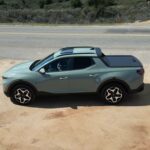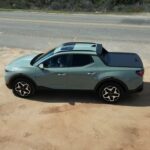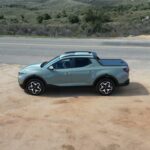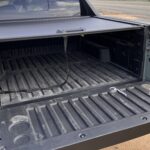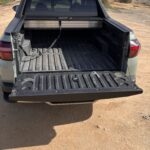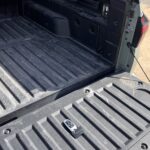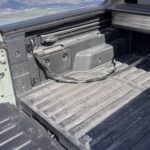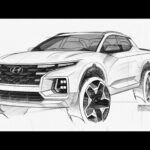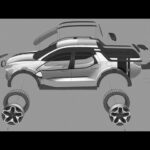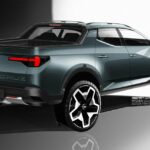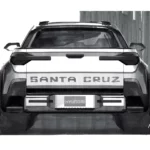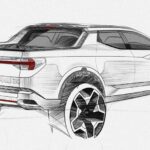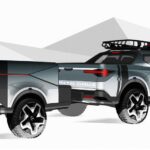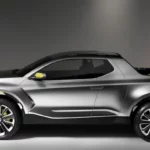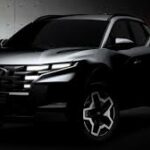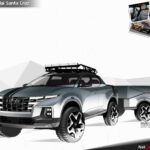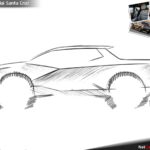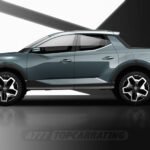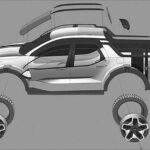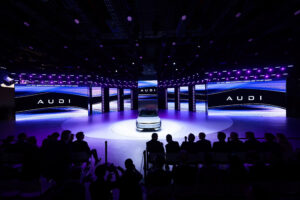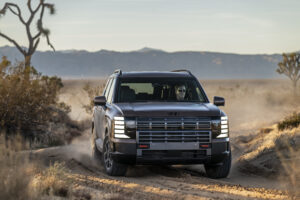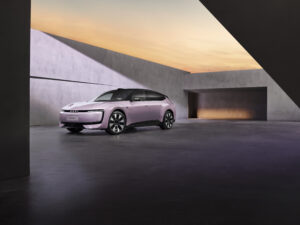Hyundai Santa Cruz: Blurring the Lines Between Compact SUV and Lifestyle Pickup
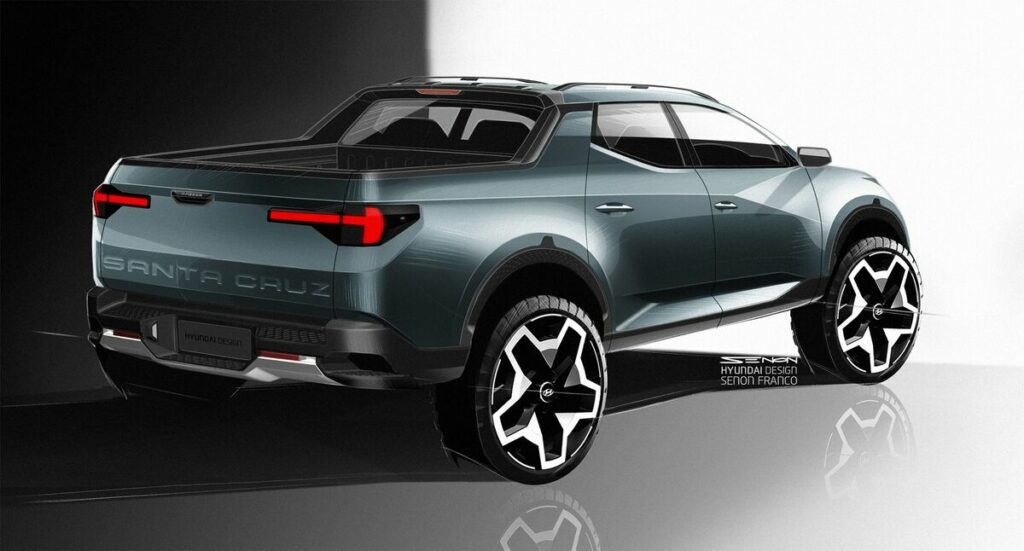
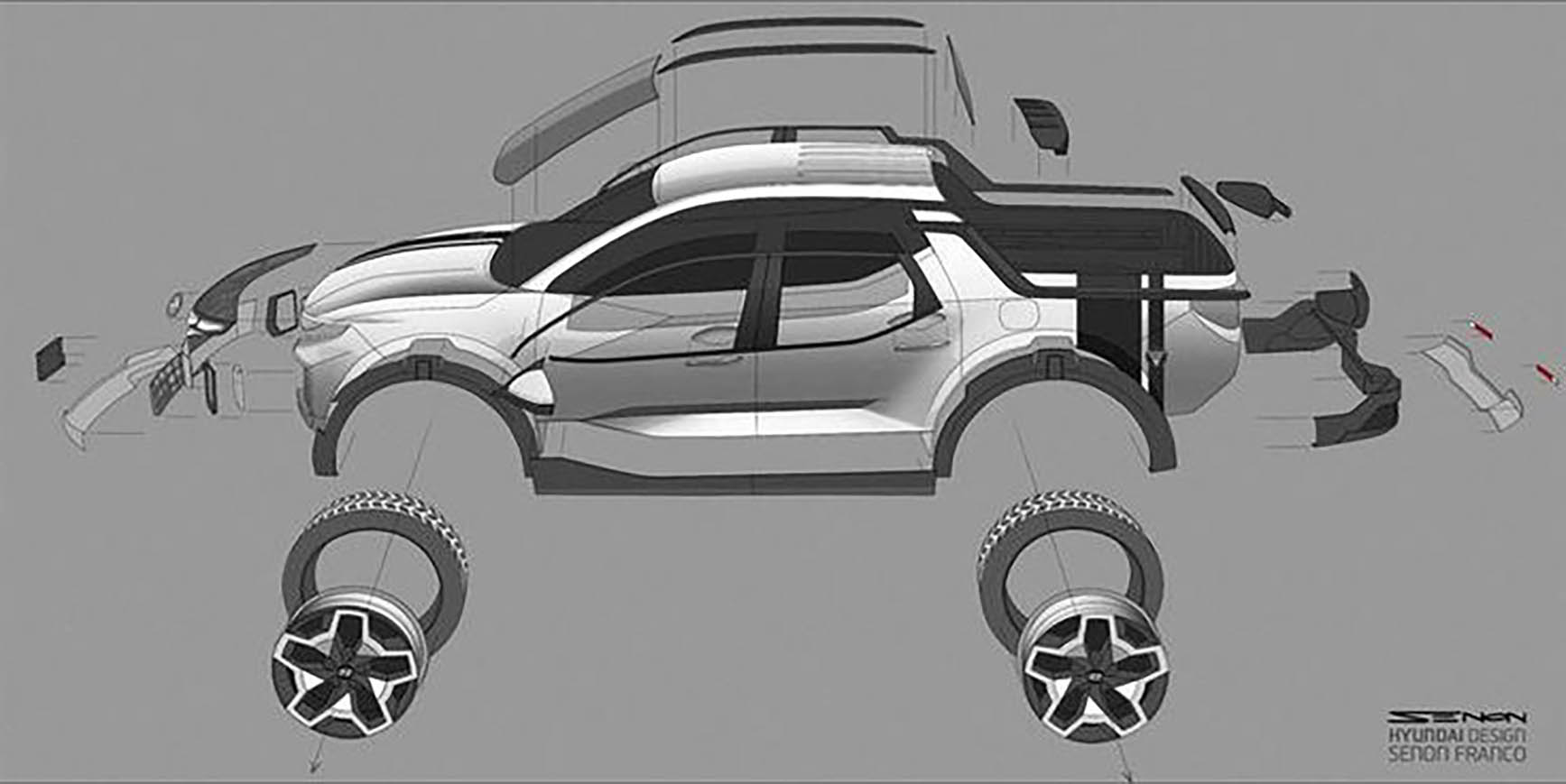
The Hyundai Santa Cruz carves a unique niche in the ever-expanding crossover market. This genre-bending vehicle defies easy categorization, blending the functionality of a compact pickup with the comfort and features of a modern SUV. We at [Magazine Name] spent a week behind the wheel of the Santa Cruz, exploring its capabilities and evaluating its place in the evolving automotive landscape.
First Impressions: Bold and Balanced
The Santa Cruz grabs attention with its bold and distinctive design. The front fascia incorporates Hyundai’s signature cascading grille, flanked by sleek LED headlights. The flowing lines and sculpted fenders create a dynamic profile that hints at both on-road prowess and off-road capability. Unlike traditional pickups, the Santa Cruz features a cleverly integrated short bed with a hidden storage compartment underneath. This innovative design element provides unexpected utility without sacrificing aesthetics.
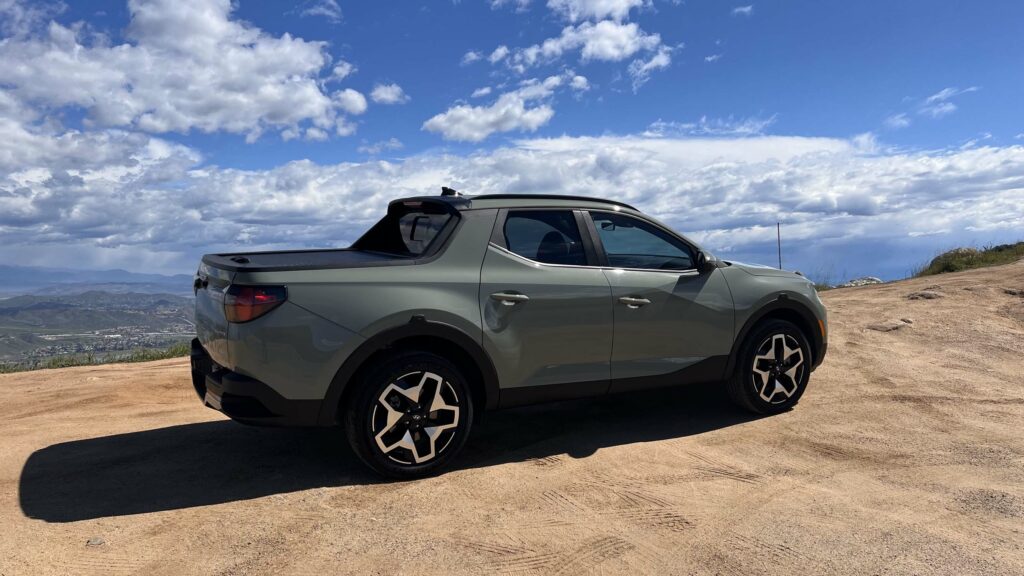
Interior: Comfort Meets Cargo Flexibility
The Santa Cruz’s cabin prioritizes comfort and functionality. The driver-centric layout features a high-quality instrument panel with a standard 8-inch touchscreen infotainment system (larger touchscreen available on higher trims). The infotainment system is intuitive and responsive, offering Apple CarPlay, Android Auto, and a suite of connected services.
The Santa Cruz offers surprising passenger space for a vehicle of its size. The front seats are comfortable and supportive, even on long journeys. The rear seats provide ample legroom for passengers of average height, making it a comfortable option for small families or friends on weekend adventures.
The true versatility of the Santa Cruz lies in its cargo configuration. The open bed provides a practical solution for hauling gear, while the hidden under-bed storage compartment offers a secure space for valuables. Folding down the rear seats creates a long and flat load floor, perfect for larger items.
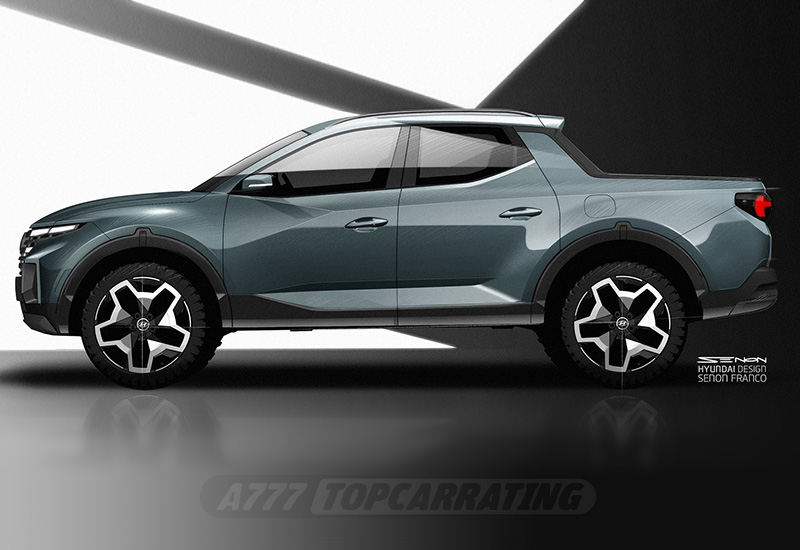
Driving Dynamics: Composed and Capable
The Santa Cruz offers a choice of two powertrains. The base 2.5L four-cylinder engine delivers adequate power for daily commutes, while the available turbocharged 2.5L engine injects a dose of excitement with its zippy acceleration. Both engines are paired with an smooth-shifting 8-speed automatic transmission.
The Santa Cruz handles surprisingly well for its size. The suspension strikes a good balance between comfort and agility, providing a composed ride on city streets and a confident feel on winding roads. All-wheel drive is available on most trims, enhancing capability on light off-road trails or slippery winter conditions. While not a dedicated rock crawler, the Santa Cruz offers enough capability to handle weekend adventures beyond the pavement.
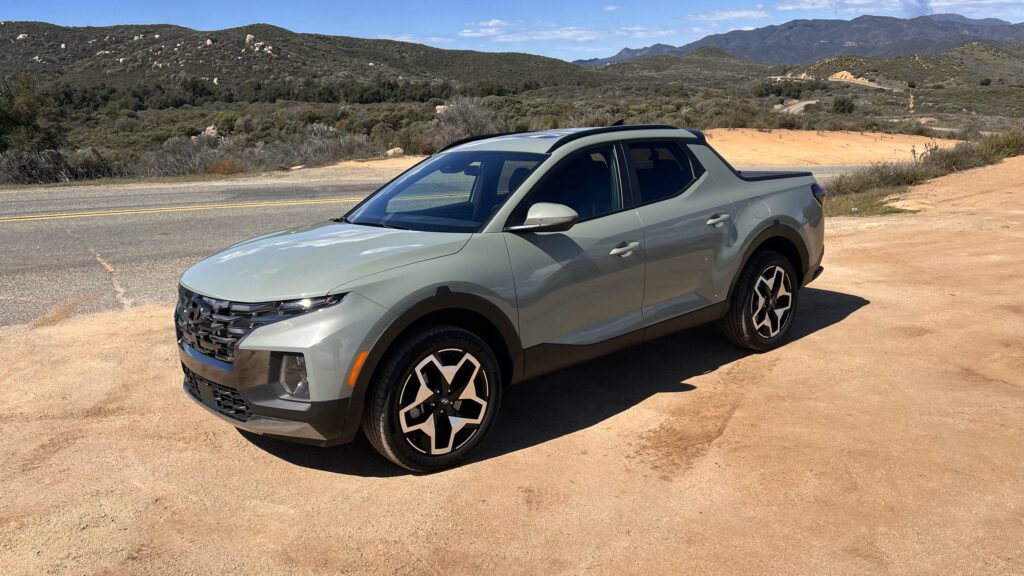
Safety First
Hyundai prioritizes passenger safety with a comprehensive suite of driver-assistance features in the Santa Cruz. These include forward-collision avoidance with pedestrian detection, lane departure warning with lane-keeping assist, blind-spot monitoring with rear cross-traffic collision avoidance, and adaptive cruise control with stop-and-go capability. This array of technologies provides peace of mind on the road, keeping occupants safe and reducing the risk of accidents.
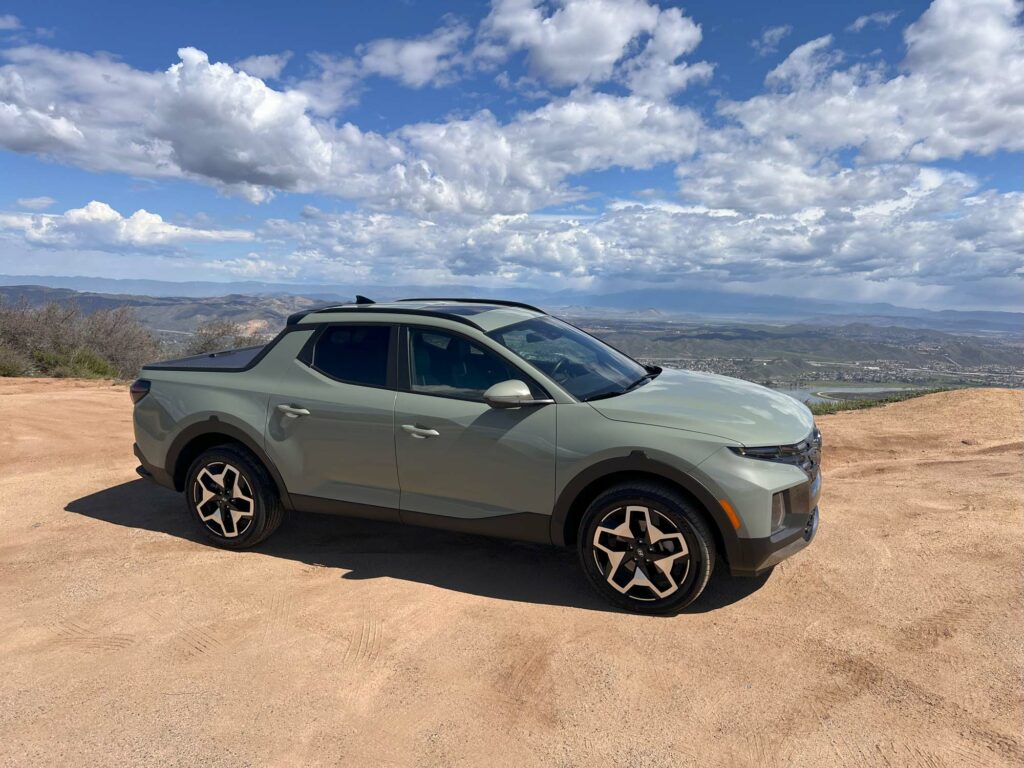
Target Audience
The Hyundai Santa Cruz isn’t a one-size-fits-all proposition. It targets a specific audience seeking a vehicle that blends urban practicality with a thirst for exploration. Here’s a breakdown of who might find the Santa Cruz particularly appealing:
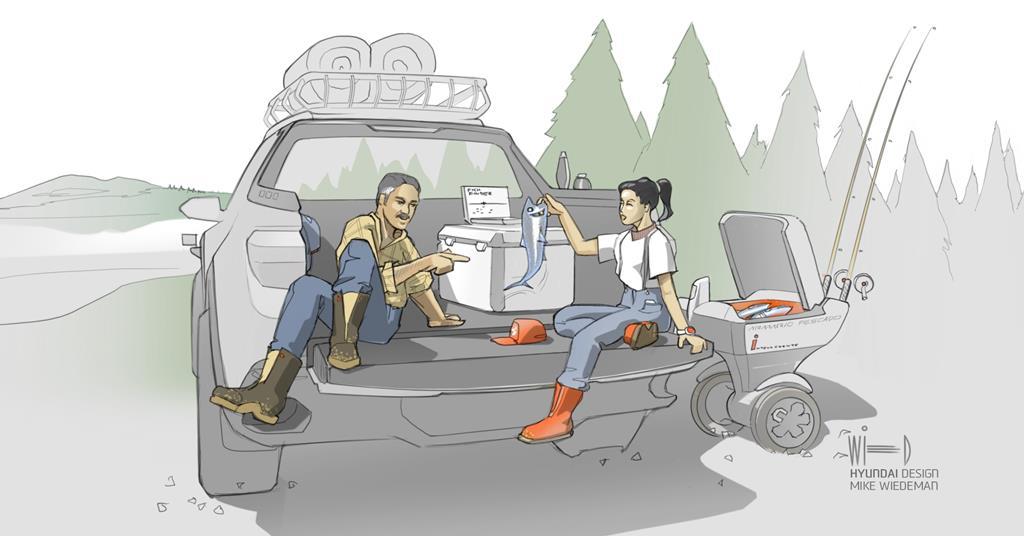
- Urban Adventurers: Young professionals with active lifestyles will appreciate the Santa Cruz’s ability to navigate city streets during the week and transform into a capable companion for weekend getaways. The combination of a comfortable interior, ample cargo space for gear, and available all-wheel drive makes it ideal for exploring nature without sacrificing comfort.
- Style-Conscious Trendsetters: This demographic prioritizes a vehicle that reflects their personality. The Santa Cruz’s bold and distinctive design sets it apart from the crowd, catering to those who value a unique and head-turning aesthetic.
- Empty Nesters Seeking Adventure: With the kids out of the house, empty nesters might find the Santa Cruz’s right-sized proportions and versatility appealing. It offers enough space for weekend adventures or road trips with friends, while remaining maneuverable and comfortable for everyday use.
- Active Couples: Couples who enjoy an active lifestyle will find the Santa Cruz’s functionality a perfect fit. The open bed allows them to transport bikes, kayaks, or camping gear for outdoor excursions, while the comfortable interior ensures a pleasant journey.
- Small Families: While not the biggest SUV on the market, the Santa Cruz offers enough space for small families with young children. The comfortable rear seats and versatile cargo options make it suitable for everyday errands and family outings.
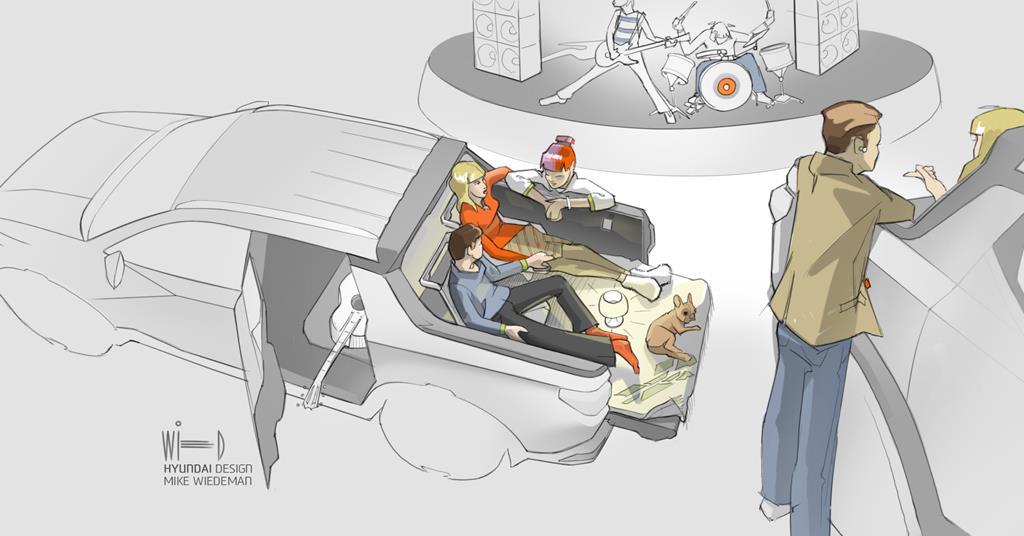
Beyond these core audience segments, the Santa Cruz might also resonate with:
- Eco-conscious Drivers: The fuel-efficient engine options cater to drivers who are environmentally conscious without sacrificing performance or capability.
- Pet Lovers: The open bed provides ample space for transporting furry companions, while the secure under-bed storage compartment offers a place to keep pet supplies organized.
- Budget-Minded Consumers: Compared to traditional pickup trucks, the Santa Cruz offers a more affordable option for those seeking a versatile vehicle without breaking the bank.
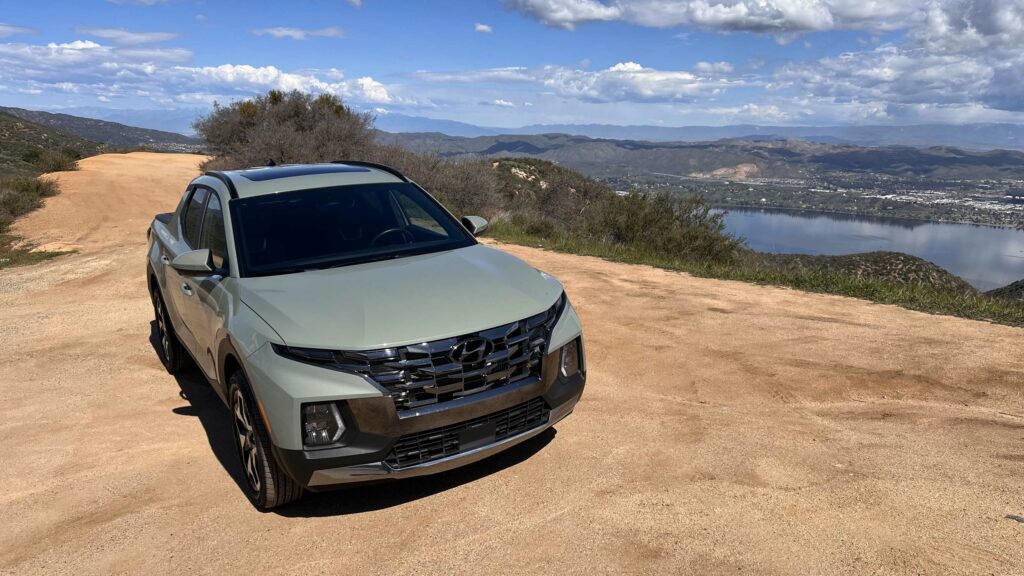
Ultimately, the Hyundai Santa Cruz targets a diverse audience united by a desire for a vehicle that seamlessly blends urban living with a spirit of adventure. It caters to those who value style, functionality, and the ability to explore the world around them in comfort and confidence.
The Competition
The Hyundai Santa Cruz occupies a unique space between compact SUVs and lifestyle pickup trucks. This unconventional approach means it faces competition from both established segments:
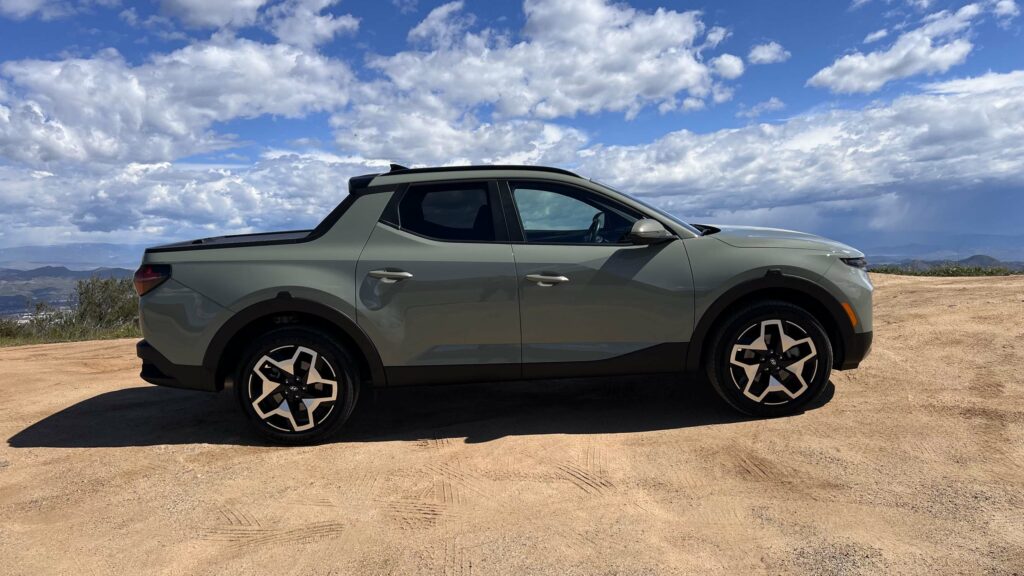
Compact SUVs:
- Honda CR-V: The perennial bestseller in the compact SUV segment, the CR-V offers a spacious interior, excellent fuel economy, and a proven track record of reliability. While not as adventurous looking as the Santa Cruz, it appeals to a wider audience seeking a practical and comfortable family SUV.
- Subaru Forester: Another strong contender, the Forester prioritizes all-wheel drive capability and off-road prowess. It offers a spacious interior, good cargo space, and a reputation for safety. For those who prioritize year-round traction and a rugged image, the Forester might be a more compelling choice.
Lifestyle Pickup Trucks:
- Ford Maverick: The Santa Cruz’s closest competitor, the Maverick offers a similar blend of car-like driving dynamics, a comfortable interior, and a small pickup bed. The Maverick boasts a hybrid powertrain option for exceptional fuel efficiency, which the Santa Cruz currently lacks. However, the Santa Cruz might have a slight edge in terms of interior design and overall aesthetics.
Other Potential Competitors:
- Toyota Tacoma: While a more traditional mid-size pickup, the Tacoma attracts buyers seeking a robust off-road companion. It offers superior towing capacity and a proven track record for durability. However, the Tacoma is pricier, less fuel-efficient, and less maneuverable than the Santa Cruz.
- Honda Ridgeline: Another mid-size player, the Ridgeline prioritizes comfort and on-road performance with its car-based platform. It boasts a spacious interior, a unique in-bed trunk, and a comfortable ride. However, the Ridgeline’s price tag is higher than the Santa Cruz, and its off-road capability is limited.
Beyond these core competitors, the Santa Cruz might also face indirect competition from:
- Small SUVs: For those who prioritize fuel efficiency and a lower price point, smaller SUVs like the Hyundai Kona or Kia Seltos might be a more compelling option.
- Wagons: For some buyers, a wagon might offer a similar blend of passenger and cargo space without the truck bed. However, wagons are a declining segment, and the Santa Cruz’s unique design offers a more versatile and adventurous alternative.
The Hyundai Santa Cruz’s success hinges on its ability to effectively communicate its unique value proposition. It caters to a specific audience seeking a stylish, functional, and adventurous vehicle that bridges the gap between SUV and pickup truck. By highlighting its blend of comfort, capability, and affordability, the Santa Cruz can carve out a niche in this evolving automotive landscape.
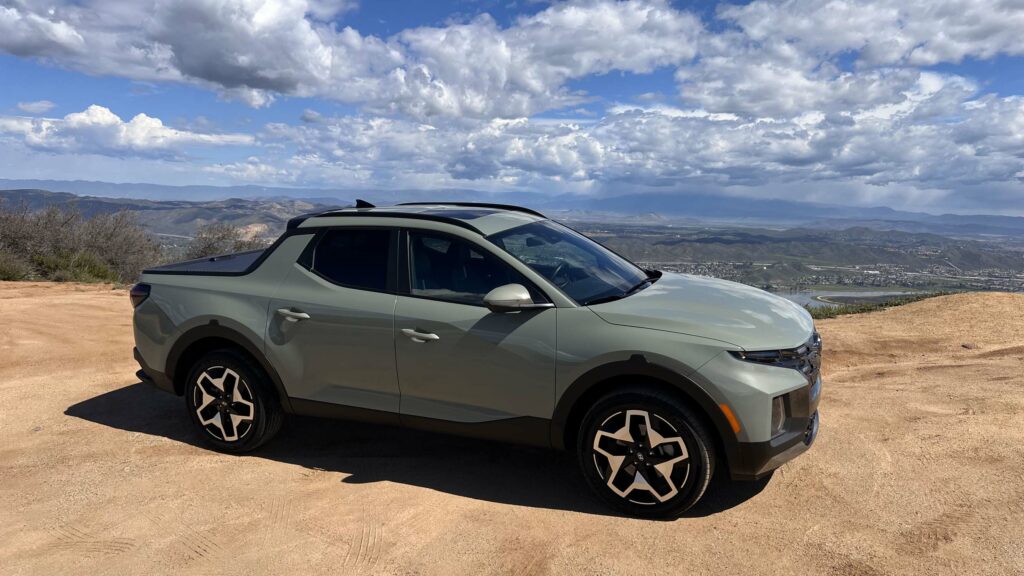
The Verdict: A Niche Conqueror
The Hyundai Santa Cruz is not your typical compact SUV or pickup truck. It carves its own path, offering a compelling blend of style, functionality, and driving dynamics. Here’s a breakdown of the pros and cons:
Pros:
- Bold and distinctive design
- Comfortable and well-equipped interior
- Versatile cargo configuration with open bed and hidden storage
- Choice of capable powertrains
- Composed handling and all-wheel-drive option
- Comprehensive suite of driver-assistance features
Cons:
- Not as spacious in the rear seat as some traditional SUVs
- Cargo bed capacity is smaller than a full-size pickup truck
- Base engine might lack power for some drivers
The Santa Cruz is a perfect choice for urban adventurers, young professionals, or small families seeking a vehicle that blends style with practicality. It’s equally at home navigating city streets, cruising on highways, or venturing off the beaten path for weekend getaways. While it might not be ideal for those who need a heavy-duty work truck, the Santa Cruz offers a unique and compelling alternative for those seeking a lifestyle vehicle that bridges the gap between SUV and pickup truck.

